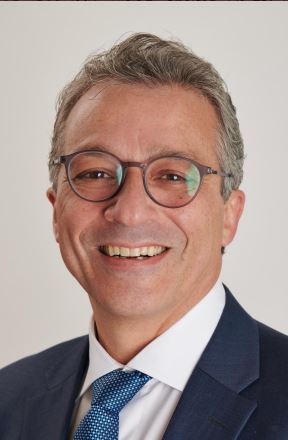SEMINARIO DE INSTITUTO
Addressing Brain-Related Disabilities
Ponente
Álvaro Pascual-Leone
Fecha y hora
20 de mayo de 2022 12:30
Lugar
Instituto Cajal
Abstract
The brain is made up of neurones engaged in dynamically changing networks that provide a most energy efficient, spatially compact, and precise means to process input signals and generate responses to a changing environment. Plasticity is an intrinsic property of such networks. Activity across specific brain networks is the proximal substrate of behavior, mood and cognition, as well as of symptoms and disabilities of disease. Thus each human trait, capacity or disability may be characterized by a specific spatio-temporal signature. Neuromodulatory techniques can modify such spatio-temporal signatures and this enables the exploration of causal brain-behavior relations and can offer precise therapeutic interventions for brainrelated disabilities (brain diseases) which can be conceptualized as circuitopathies. This suggests a transformative approach: Modulating specific brain networks for personalized interventions to minimize specific brain-related disabilities, suppress symptoms, and promote resilience to reduce the risk of brain
Affiliation and short bio

Alvaro Pascual-Leone, MD, PhD, is a Professor of Neurology at Harvard Medical School, a Senior Scientist at the Hinda and Arthur Marcus Institute for Aging Research and the Medical Director of the Deanna and Sidney Wolk Center for Memory Health at Hebrew SeniorLife (HSL) in Boston, MA. He also serves as scientific director for the Guttmann Brain Health Institute in Barcelona, Spain. A major current focus of Dr. Pascual-Leone’s scientific work is to characterize and promote brain health across the lifespan, prevent age-related cognitive decline, and minimize disability in patients with neuropsychiatric disorders while gaining fundamental insights into human brain function. He has published more than 800 scientific peer-reviewed papers. He remains a practicing cognitive neurologist and dementia specialist with a focus on comprehensive, patient-centered, personalized care and multidisciplinary, holistic support of individuals with cognitive decline, their families and caregivers. He has been honored with many international awards and is an elected member of the Spanish Royal Academy of Pharmacy
Related publications with the topic
Ozdemir RA, et al. Cortical responses to noninvasive perturbations enable individual brain fingerprinting. Brain Stimul. 2021 Mar-Apr;14(2):391-403. doi: 10.1016/j.brs.2021.02.005. Epub 2021 Feb 12. PMID: 33588105
Siddiqi SH, et al. Brain stimulation and brain lesions converge on common causal circuits in neuropsychiatric disease. Nat Hum Behav. 2021 Dec;5(12):1707-1716. doi: 10.1038/s41562-021-01161-1. Epub 2021 Jul 8. PMID: 34239076
Pascual-Leone A, Bartres-Faz D. Human Brain Resilience: A Call to Action. Ann Neurol. 2021 Sep;90(3):336-349. doi: 10.1002/ana.26157. Epub 2021 Jul 19. PMID: 34219268 Menardi A, et al. Toward noninvasive brain stimulation 2.0 in Alzheimer’s disease. Ageing Res Rev. 2021 Dec 30;75:101555. doi: 10.1016/j.arr.2021.101555. Online ahead of print. PMID: 34973457
